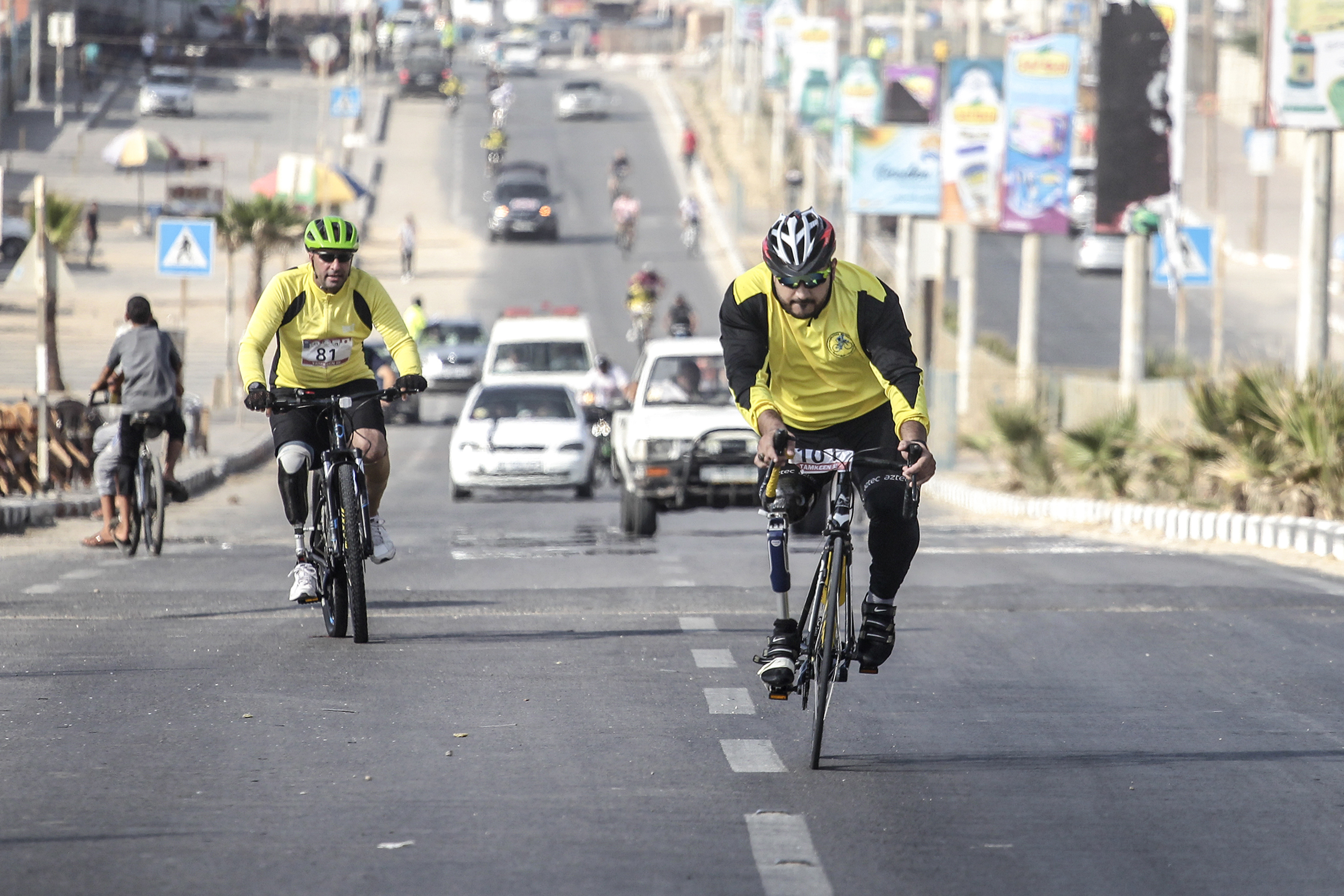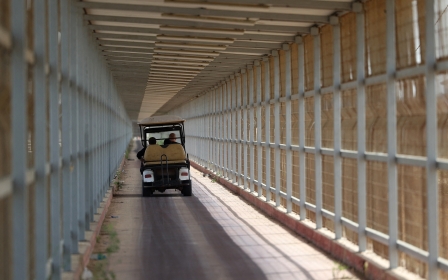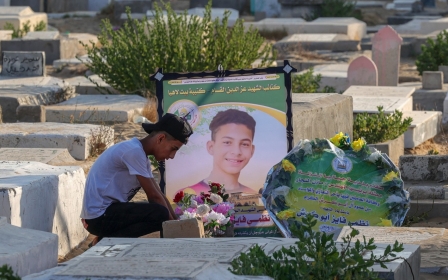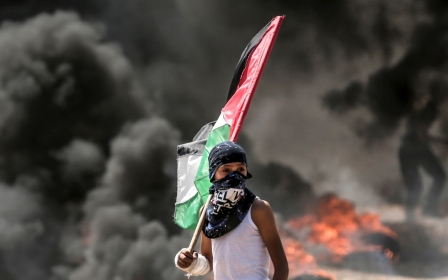Hero of Gaza: Shot by Israel, denied the chance to compete. He didn't give up
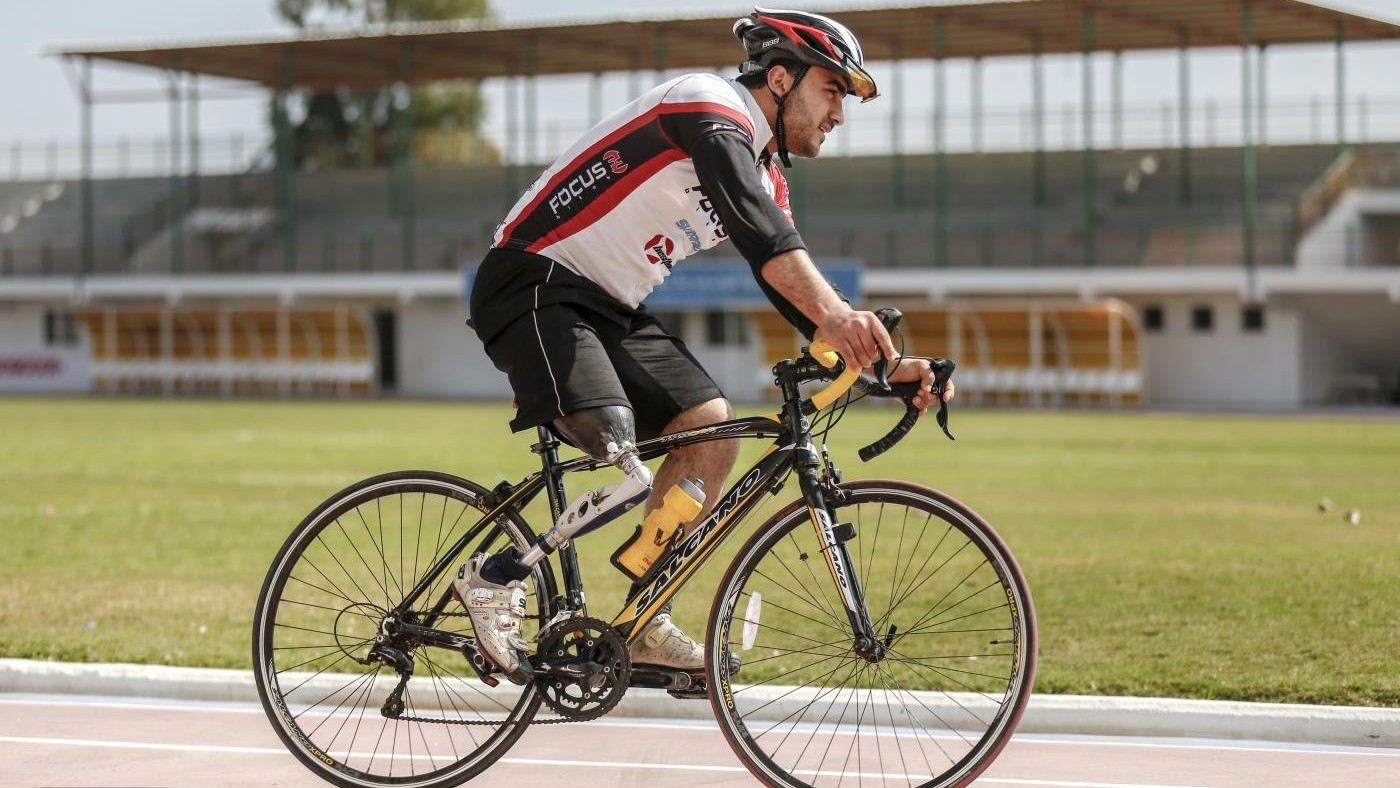
Five years ago, on 30 March 2018, Palestinians from Gaza, marking Land Day, launched the Great March of Return, a peaceful mass demonstration at the eastern border, which demanded that UN Resolution 194 - the right of return - be recognised.
It seems like it was just yesterday. I decided to attend the march like any other Palestinian who was never allowed to visit the other parts of Palestine.
As a journalist, I couldn't help but pore over the list of names of those murdered and wounded by the Israeli snipers on the first day of the demonstration.
Tens of names, including children and women, were on the list, but my eyes caught a name that I had recently gotten to know, Alaa al-Dali, a cycling champion who was waiting to attend an international race due to take place in a few months.
The first distressing thought that crossed my mind was: "This can't be happening; what was he doing at the march"? I later learned that, like me, Alaa had been told repeatedly that he couldn't leave the blockaded Gaza Strip both by the Israeli authorities and the governments that rejected his visa.
New MEE newsletter: Jerusalem Dispatch
Sign up to get the latest insights and analysis on Israel-Palestine, alongside Turkey Unpacked and other MEE newsletters
With every door closed to him and seemingly no hope of pursuing his dream of becoming a world-class cyclist, Alaa decided to raise the Palestinian flag and join the protest alongside the many other dreamers.
He was standing 900m away from the fence, his bike on the ground and his gaze fixed on the border. Suddenly, Alaa fell to the ground, without even feeling that he had been shot in the knee.
The scene and what had just occurred was inconceivable to him.
A few weeks later, I learned the heartbreaking news that Alaa had been denied permission by the administration of the Israeli border to travel to a hospital in Israel (run by 1948 Palestinians) for treatment.
With no other options, he had eight operations in Gaza before having to give up his leg and have it amputated in order to save what was left of his life. "You need to give up hope, Alaa, You'll die if we wait any longer," Alaa recalls the doctor telling him.
Witnessing a miracle
During the protest, I was working with a youth storytelling project called "We Are Not Numbers", initiated in 2015, to share human stories of those behind the casualty numbers listed in the news.
After Alaa lost his leg, I didn't have the courage to interview him. That cowardice stemmed from the realisation that he might be going through a very tough time after he lost his leg. In my mind, I imagined the words he might say, like anyone else who lost a loved one or a significant part of their life: "I wish I died rather than losing my leg", for instance.
Having lost loved ones before and during the march, I knew this feeling acutely. I was afraid to hear those words again and underwent five months of therapy. But then I saw a photo of Alaa with his amputated leg posted online, which gave me the courage I needed to work on his story. It took me and my colleague just five minutes to walk to his house.
Alaa's story was deeply touching. It motivated my friend Flavia Cappellini, a director and filmmaker, to follow his journey and make two short documentary films, Cycling Under Siege and Tour de Gaza in the following years.
The story of Alaa has never been a journalistic one for either Flavia or me, but a human miracle that taught many of us valuable life lessons. "They [Israeli snipers] have denied me the chance to become a champion on two legs, but I'll do it with only one," Alaa told us.
Alaa's hopeful message was betrayed by his expression during the interview. It was clear that he was fighting deep despair but, with tremendous courage, he shared his dream of establishing the first para-cycling community in Gaza.
Since 2020, many people from Gaza, Italy, and the UK - para-cyclists and volunteers who shared Alaa's dream - joined together to establish the Gaza Sunbirds project, which was later registered as a community interest company in the UK.
British human rights groups like Amos Trust and The Big Ride for Palestine believed in the project’s vision: sending a cycling team from Gaza to the 2024 Paralympics in France.
They worked with us to solve the financial constraints by starting a campaign to raise money for the project's start-up budget.
It was known that the project had been built on Alaa's powerful story, which got attention through the documentaries we made and several stories we wrote about him. Nonetheless, the project struggled with the difficulties imposed by the ongoing 16-year Israeli siege on Gaza, a place where cyclists can't ride as far as they desire.
Political challenges
Gaza is not only physically enclosed but it is also cut off from the rest of the world in terms of economic and diplomatic relations. This reality makes it extremely difficult for the project to legitimately represent Palestine.
Many other problems related to the siege that still haven't been resolved remain a concern. All the efforts we made weren't enough to convince para-cyclists, who continue to live in a deteriorating situation in Gaza, to have hope. And so, while many para-cyclists joined the project, they never could commit to it.
Alaa tried to lead them himself, but it has been difficult for him to bring them on despite him being in the same situation.
Para-cyclists have no jobs or any governmental help; thus, they needed financial support, which our project couldn’t offer due to limitations from the UK government.
British authorities forbid companies and organisations from sending funds or making direct payments to people living under the rule of both the Palestinian Authority or Hamas, which could have led our volunteers and partners in the UK to face grave consequences.
To make matters worse, the project has also struggled with local pushback. It's sometimes hard to believe that Alaa was denied by his own people the chance to travel or represent Palestine in para-cycling, especially since athletes from Gaza often receive less attention.
Furthermore, the de facto government of Hamas in Gaza is usually worried about people getting money from outside Gaza without a direct contract. This is why Alaa, Flavia, me, and other volunteers from Gaza were called in by them for questioning.
A bird forbidden to fly
Like the rest of us, Alaa hoped that someone powerful would free him from the shackles that were suffocating his body.
Foreign governments have more than enough reason to believe Alaa will return to Gaza now that they know he is both a husband and a parent. Yet, several governments refused Alaa's visa because they saw him as "a dangerous immigrant".
While it may seem impossible to lose hope and then regain it, Alaa has managed to do so numerous times
Notwithstanding our efforts and the hopes we had for improving the situation in Gaza, we remained optimistic and submitted an application on behalf of this project to the Union Cycliste Internationale (UCI) so that Alaa could attend a week-long paracycling training camp in Switzerland at the end of February.
After Alaa and one of my colleagues spent weeks worrying and having long conversations with the Swiss embassy to make sure their visas would be approved, they were both told by phone that they were turned down for the same reason.
"I have a kid and a wife in Gaza, to whom I will undoubtedly return after participating in the tournament," Alaa pleaded with much anguish.
The tournament came and went with Alaa remaining in Gaza, his situation unchanged. But while it may seem impossible to lose hope and then regain it, Alaa has managed to do so numerous times.
This time, however, the tone of his speech made everyone in the group anxious. Alaa murmured, "I can't apply again; it's killing me," in a quavering voice that sounded like the tears of a broken heart.
The views expressed in this article belong to the author and do not necessarily reflect the editorial policy of Middle East Eye.
Middle East Eye delivers independent and unrivalled coverage and analysis of the Middle East, North Africa and beyond. To learn more about republishing this content and the associated fees, please fill out this form. More about MEE can be found here.




